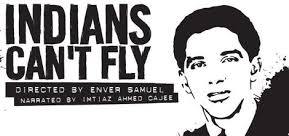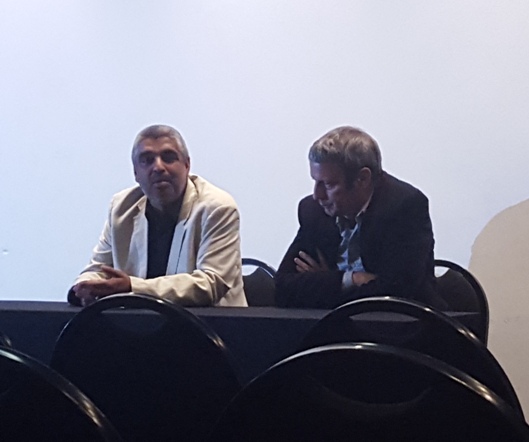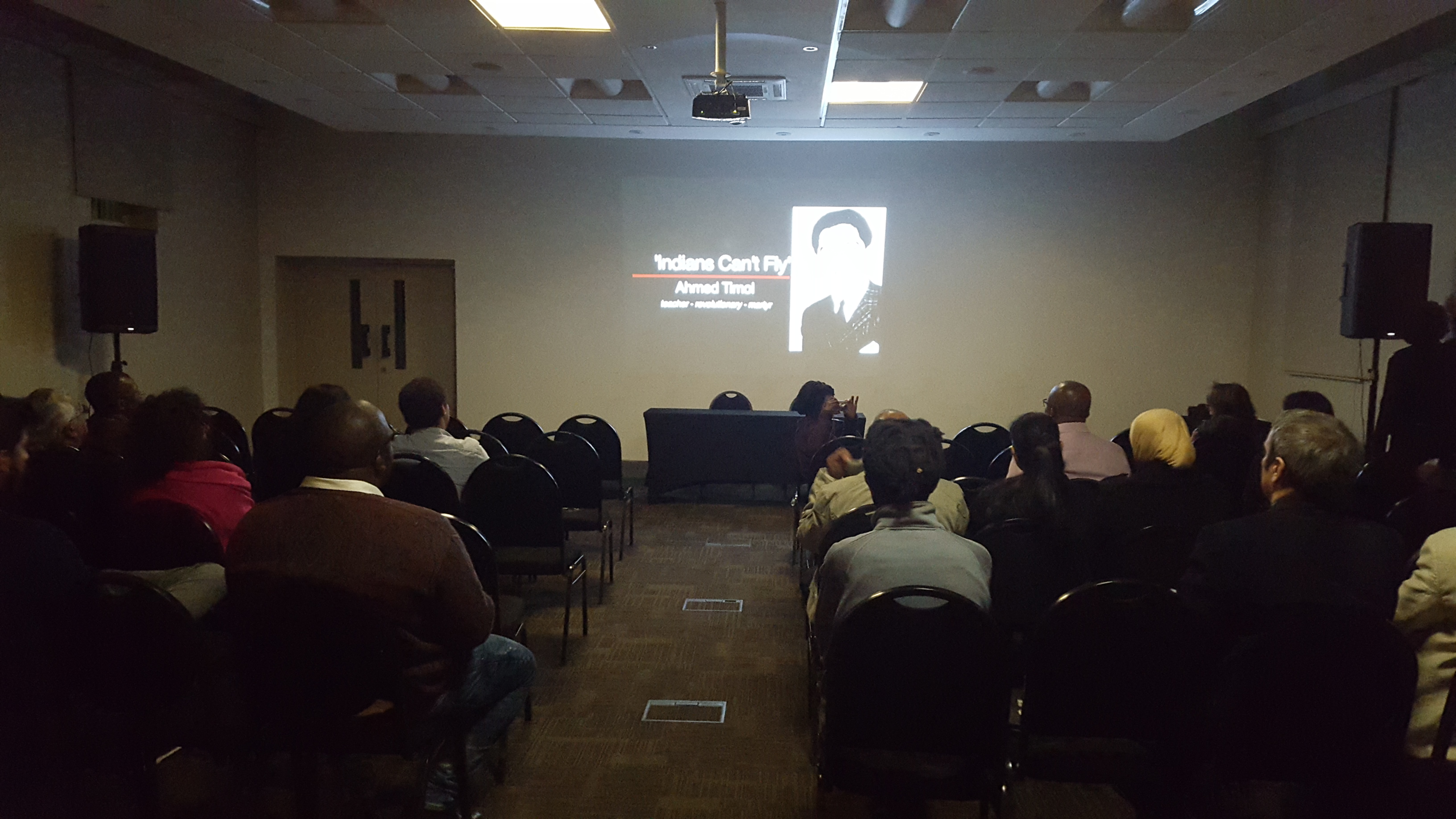|
06 May 2016
#TRC20 report back: "Indians can’t fly" documentary screening and discussion

On Thursday 3rd of May 2016 the South African History Archive (SAHA) and the Ahmed Timol Family Trust co-hosted a screening of "Indians Can’t Fly".This documentary which commemorates the life and death of Ahmed Timol. This was part of a collaborative programme to mark 20 years since the first public hearings, on 15 April 1996, of South Africa’s Truth and Reconciliation Commission (TRC).
The documentary tells the story of, Ahmed Timol, the anti-apartheid activist who plunged to his untimely death at the age of 29 from the notorious 10th floor of John Vorster Square police station in October 1971, presumably at the hands of the security police.
The screening was followed by an engaging panel discussion on justice and the struggles of family members to find the truth.The speakers were Imtiaz Ahmed Cajee, Timol’s nephew who narrated the documentary and advocate Howard Varney from the International Centre for Transitional Justice. Catherine Kennedy, director of SAHA, facilitated the discussions. SAHA has collaborated several times with Imtiaz Cajee over the last ten years in making the Timol story more accessible.

Imtiaz Cajee shared the frustrations felt by the family of how during the Truth and Reconciliation Commission (TRC) Ahmed Timol’s case had been neglected, and the investigator tasked with it resigned from the commission. This is but one instance where families were not able to gain the truth from the TRC. The family has worked hard to try and find all information on what happened 45 years ago. The family feels that the TRC failed. Of the several hundred priority cases put forward by the TRC, only 10 were tried and there have been no convictions. “Nothing was happening because prosecutors were told to stop their work and if they didn't they lost their jobs,” explained Varney.
Today families and those affected by South Africa’s past have two major barriers to overcome in finding information of what happened during the apartheid years. Firstly the challenge of reopening inquests and secondly gaining access to apartheid era records from the current government. Imtiaz Cajee believes that “these secrets of the past are why we have problems today.” They are a major hindrance to the healing of the country.
|







